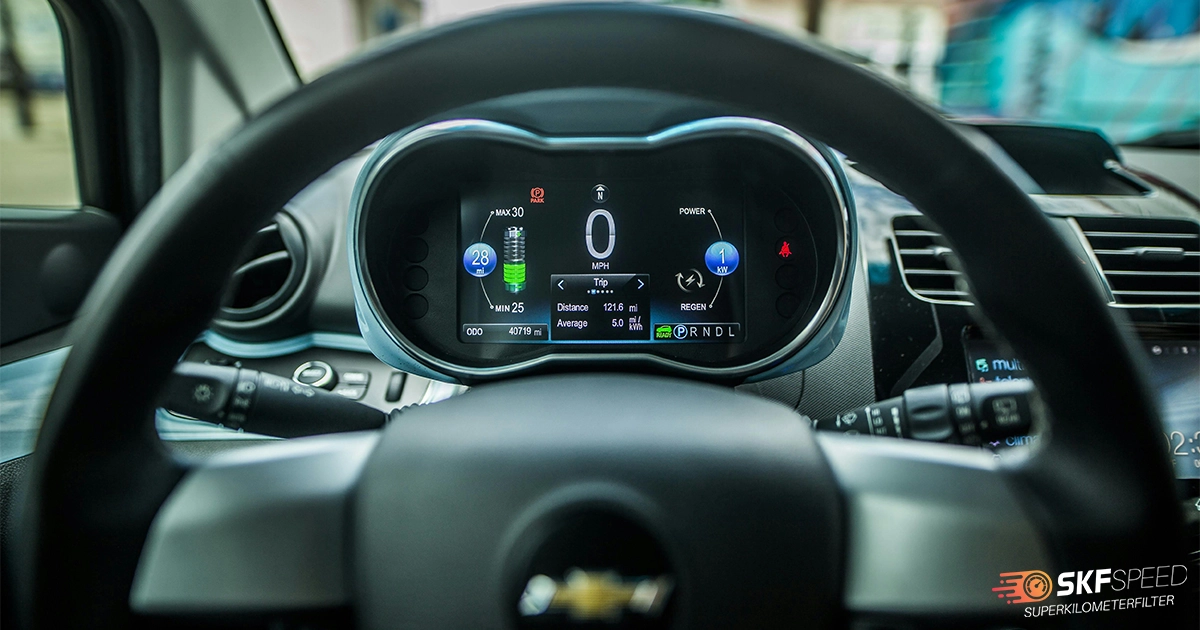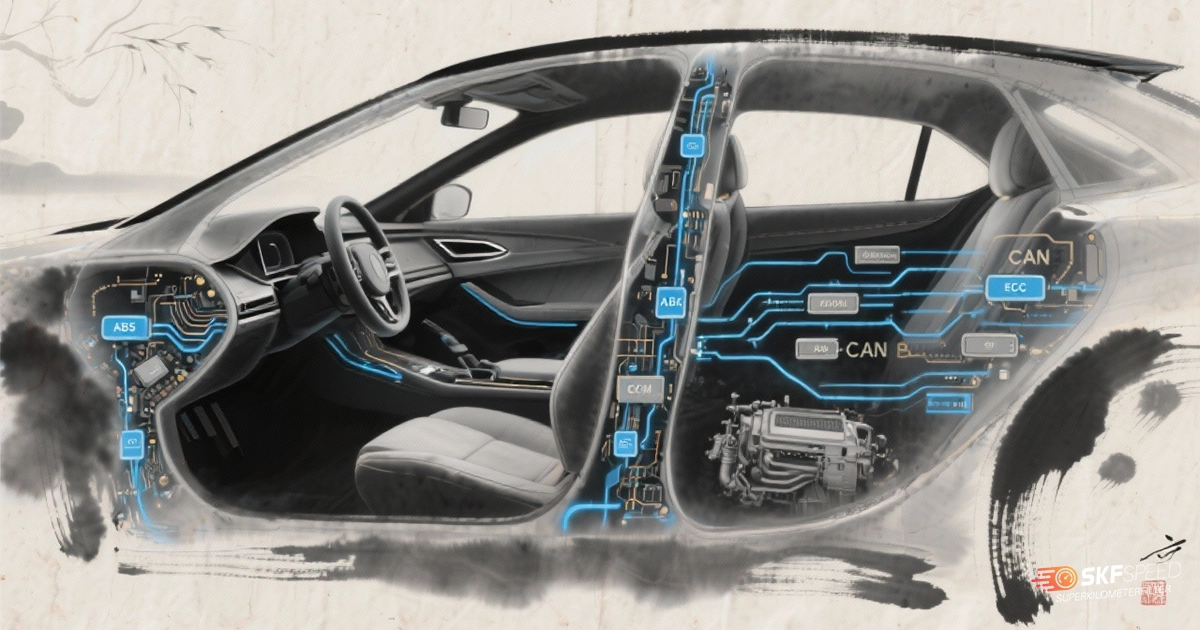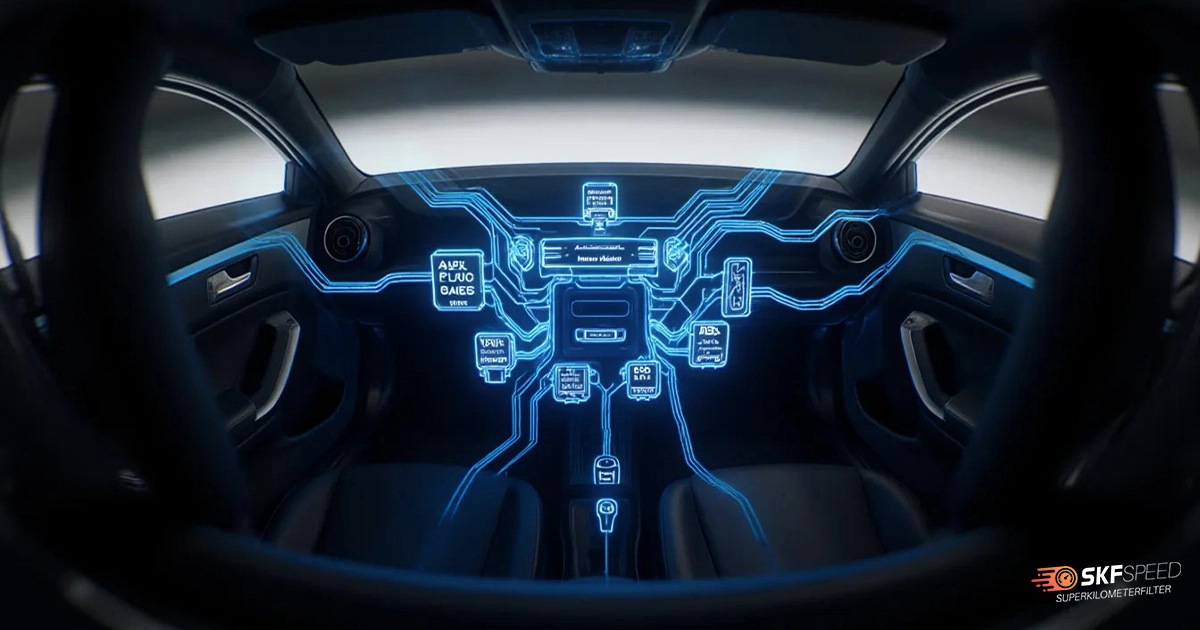
The automotive industry has never been as developed and powerful as it is today. It is the development of technology and the introduction of innovations in the car that made our journey more comfortable and enjoyable. Auto manufacturers are constantly trying to introduce new features in their cars and show their advantage in the competitive field. However, technology is evolving for other people as well. In particular, for those who want to hack your car and manipulate it. Their goals and methods are often unpredictable; thus, protecting machines from hackers is becoming more difficult every day. This article analyzes the signs of a car being hacked and how you can protect your vehicle from hackers.
Car hacking refers to unauthorized access to a vehicle’s control systems or networks. Modern vehicles have intricate systems that manage keyless entry, driver assistance, and various other features. Hackers typically target these systems by identifying even the smallest vulnerabilities. This allows them to gain control of the vehicle and manipulate its functions. This may lead to actions such as data breaches and can pose safety and security risks. Smart technology in vehicles has greatly improved connectivity, but it also presents potential vulnerabilities for cyberattacks. Enhancing cybersecurity measures is crucial for strengthening vehicle functionality and promoting driver safety. Focusing on these things can really help you make driving better and safer.
Car hacking is a relatively new phenomenon. That is why car owners have not yet fully learned the techniques used by hackers, making them vulnerable to hacking. Here are the most common forms used in the car hacking process.
Hackers are known for writing code that allows them to break into systems without permission. This approach is not limited to computers, and the same goal can be achieved in cars as well. Through remote software hacking, one can gain control over your GPS, transmission, steering wheel, and even brakes. Such activities surely raise serious safety questions and require meticulous attention.
If you’re wondering whether such an incident occurred, the answer is YES. It happened in 2015 in the famous Jeep Cherokee case. Cybersecurity researchers Charlie Miller and Chris Valasek confidently identified signs of car being hacked in the vehicle’s system, which was primarily due to its internet connectivity, which enabled easy remote access. This incident demonstrated severe security risks and made the manufacturers update security measures in more than a million cars.
Key fob hacking is one of the most common car hacking methods. By utilizing different devices, people can receive a signal from a key fob and expand or transfer it. Redirecting these signals enables others to access your car without having physical keys.
If you think that modern vehicles are protected from such risks, unfortunately, that is not correct. Luxury cars and brand new expensive models that have a keyless entry system are the major targets for key fob hacking.
Hackers can illegally mine your data through your automobile. It all starts with downloading an infected app or file to your car’s infotainment system. If the car is connected to your phone via Bluetooth, hackers can access your data. That’s why you should always be careful before making any changes to your car’s computer system.
These are the top 10 ways that hackers use against your auto:
Here is the list of top car models that can be under the car hacking risks based on their technological features and connectivity options:

Yes, your car may be a victim of a hacking attack. Hackers can manipulate your car by using a computer and tapping the signal. You may not notice signs of car being hacked at first, but you will gradually find something suspicious. Modern automobiles sometimes have advanced software that optimizes driving experiences, but these technologies may have flaws that hackers might target.
Dashboard warnings, unusual actions in automobile functions, and unpredictable touchscreen replies are all indicators of hacking. To prevent hacking, car owners should update software regularly, use safe passwords for linked apps, and take security measures such as turning off Wi-Fi or Bluetooth when not in use.
It is critical to understand how to recognize warning indications of potential hacking throughout the auto maintenance procedure. Identifying car hacking signs quickly could be difficult. However, there are early warning signs such as braking issues, unexpected accelerations, or an unruly steering wheel. The car may also display warning alerts on its dashboard. Let’s discuss what these indicators are and how to determine faults in vehicles on time.
Unexpected locking and unlocking of your vehicle can be one of the first indicators that it has been hacked. If the doors of your car lock or unlock by themselves without any action from you or your key fob, this is a warning sign to take seriously. There are two possible explanations. Hackers might use devices to intercept and replicate key fob transmissions. Alternatively, malicious programming could disrupt conventional locking procedures.
Unexplained changes in a vehicle’s performance can be signs of car being hacked. If the automobile suddenly shows unusual behavior, such as unpredictable acceleration, irregular braking, or rapid drops in fuel economy, it could mean that its systems have been tampered with. Hackers can gain access to the car’s ECUs and manipulate settings, causing the vehicle to behave unpredictably. For example, changing engine reactions or the rapid activation of specific functions without driver input could indicate unauthorized access. Such deviations not only degrade driving enjoyment but also jeopardize safety.
Unusual dashboard warning lights might be an early clue of car hacking as they typically indicate interference with the vehicle’s electronic systems. Modern cars rely on complex software to control their engines, brakes, and safety measures, and hackers who gain access to such technologies can change or deactivate their functioning. When these mechanisms are modified, unusual warning lights can light up without any underlying technical fault, or they may fail to appear when there is a serious problem. For instance, a hacker may turn on the airbag warning light or modify the check engine light to deceive the driver.
Unexplained changes in a car’s location or mileage can indicate potential hacking. Modern vehicles are equipped with GPS systems and digital odometers, which cybercriminals can target. If your car’s navigational information appears manipulated or indicates routes that you never traveled, it could indicate unauthorized access and tampering. Similarly, unusual changes in mileage—such as rapid rises or inconsistencies that do not match real usage—may suggest that hackers modified the vehicle’s data. Reasons can be various, including fraud or circumventing mileage restrictions. Such interference not only invades the owner’s privacy but may also trigger issues with safety, maintenance tracking, and the vehicle’s resale value.
Unauthorized Bluetooth or Wi-Fi connections might be modest yet significant signs of possible vehicle hacking. When illegal devices connect to a car’s system via Bluetooth or Wi-Fi, it could be an attempt to access vehicle data or control features. Unauthorized connections can enable hackers to obtain conversations, change car settings, or even operate vital components remotely. Detecting and resolving strange connections is essential for protecting the automobile from any breaches that could jeopardize driver safety and the general integrity of your vehicle’s systems.
Hacking machines is a significant challenge in the modern day. While manufacturers have the most resources to deal with this issue, you can take steps to secure your vehicle from hackers.
These are the common steps that will help you improve the security of your vehicle and protect it from hackers. When it comes to safety, always be careful about suspicious activities or warning signs.

The mileage blocker is the safest and most effective remote device for vehicle testing. It doesn’t store data in ECUs, so it does not leave any trace. No scanner tools or testers can detect the real mileage. The SKF mileage blocker doesn’t need special technical knowledge, and it includes easy installation instructions for everyone. This device is legal in many countries, but local guidelines and laws must always be checked. For any information, please contact customer service.
It has become extremely challenging to protect a vehicle from hackers and detect signs of car being hacked. Modern vehicles, with advanced connectivity and technology, are increasingly vulnerable to cyberattacks. Key warning signs include unexpected unlocking, changes in performance, dashboard alerts, altered mileage, and unauthorized Bluetooth connections. To protect against hacking, car owners should update software, avoid suspicious apps, limit wireless access, and use trusted service centers.





Here you will find all the details about our company
Here you will find shipping and return related information
Here you will find information on all technical questions
Here you will find helpful information about installation